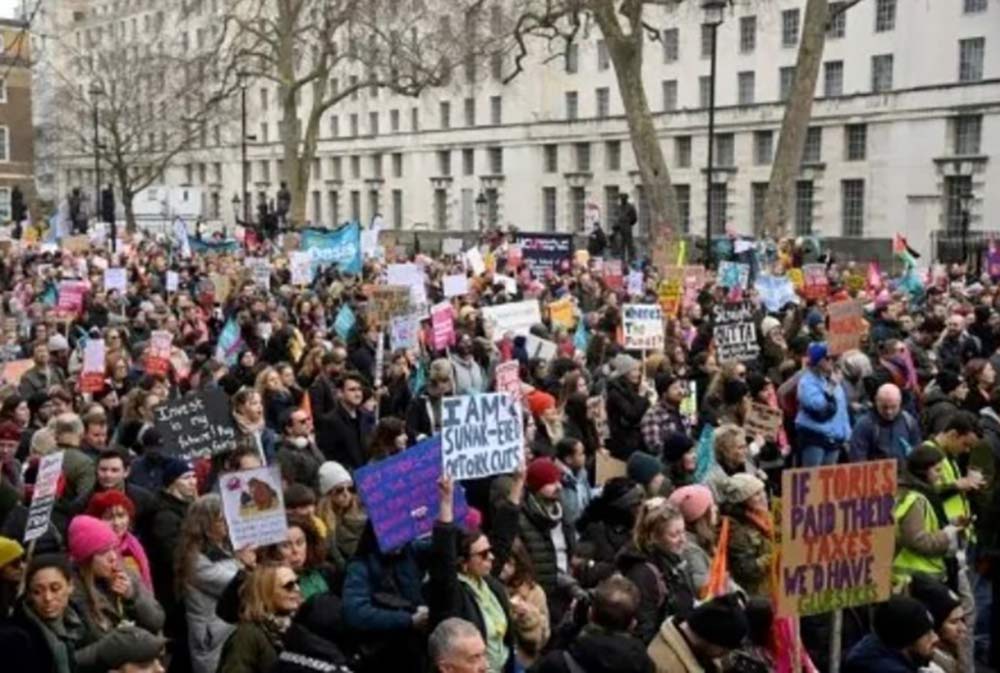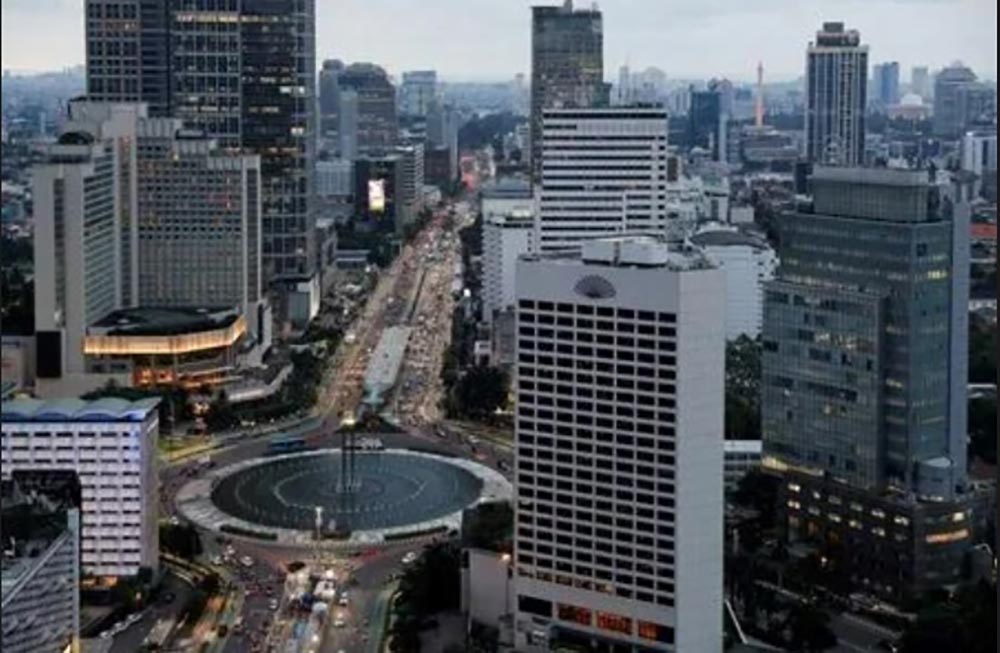LONDON- Britain faces its largest ever strike by health workers on Monday as tens of thousands of nurses and ambulance workers walk out in an escalating pay dispute which the health minister said would place further strain on the National Health Service (NHS).
Nurses and ambulance workers have been striking separately on and off since late last year but Monday’s walkout involving both, largely in England, will represent the biggest in the 75-year history of the NHS.
England’s top doctor, Stephen Powis, said strike action this week, which will also see physiotherapists walk out on Thursday, would most probably be the most disruptive so far.
Health workers are demanding a pay rise that reflects the worst inflation in Britain in four decades, while the government says that would be unaffordable and cause more price rises, and in turn, make interest rates and mortgage payments go up.
Around 500,000 workers, many from the public sector, have been staging strikes since last summer, adding to pressure on Prime Minister Rishi Sunak to resolve the disputes and limit disruption to public services such as railways and schools.
Health minister Steve Barclay urged people to continue access emergency services and attend appointments unless they had been cancelled but underlined there would be disruption.
“Despite contingency measures in place, strikes by ambulance and nursing unions this week will inevitably cause further delays for patients who already face longer waits due to the COVID backlogs,” he said in a statement.
“I have held constructive talks with the trade unions on pay and affordability and continue to urge them to call off the strikes.”
Sharon Graham, leader of the Unite union, told the BBC on Sunday she wanted Sunak to come to the negotiating table. “This government is putting lives at risk,” she said.
The NHS, historically a source of pride for most Britons, is under extreme pressure with millions of patients on waiting lists for operations and thousands each month failing to receive prompt emergency care.
The RCN says a decade of poor pay has contributed to tens of thousands of nurses leaving the profession – 25,000 over just the last year – with the severe staffing shortages impacting patient care.
The RCN initially asked for a pay rise of 5 percent above inflation and has since said it could meet the government “halfway”, but both sides have failed to reach an agreement despite weeks of talks.
Meanwhile, thousands of ambulance workers represented by the GMB and Unite trade unions are also set to strike on Monday in their own pay dispute. Both unions have announced several more days of industrial action.
Not all ambulance workers will strike at once and emergency calls will be attended to.
In Wales, nurses and some ambulance workers have called off strikes planned for Monday as they review pay offers from the Welsh government.
Sunak said in a TalkTV interview last week he would “love to give the nurses a massive pay rise” but said the government faced tough choices and that it was funding the NHS in other areas such as by providing medical equipment and ambulances.
Britain’s economy unexpectedly eked out some growth in November after a boost from World Cup drinkers and video game sales, reducing the chance that it has already slipped into recession, but the picture for 2023 remains gloomy.
Gross domestic product rose 0.1 percent from October, figures from the Office for National Statistics showed last month, a higher reading than any forecast in a Reuters poll of economists which had pointed to a 0.2 percent decline.
The growth surprise means there will need to have been a sharp fall of around 0.5 percent in output in December for Britain to record two straight quarters of falling GDP, the commonly used definition of recession in Europe.
The world’s sixth-biggest economy shrank 0.3 percent in the three months to the end of September, when output was hit by business closures to mark Queen Elizabeth’s funeral.
“With a fair wind, the UK may now avoid recession, though December was marked by widespread strikes and activity survey readings were weak,” HSBC economist Liz Martins said.
The broader picture remains subdued. The ONS said economic output in November was 0.3 percent lower than before the pandemic. In all the other Group of Seven economies output has surpassed pre-pandemic levels.
Consumer price inflation hit a 41-year high of 11.1 percent in October and living standards are undergoing their biggest squeeze in decades. The government’s budget watchdog forecast in November that output would fall by 1.4 percent in 2023. – Reuters





